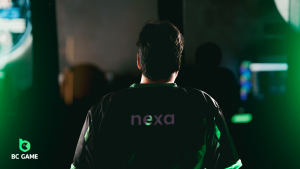Esports remains a relatively divisive topic going into 2025. Many still see the esports industry as a fledgeling thing doomed to fail, while others believe it’s a titanic powerhouse of potential with untapped avenues of income left, right, and centre.
In recent years, esports has been nothing short of a turbulent space to exist in. It’s still developing – and likely will be for many years to come – and a lot is happening under the hood that the average fan might not see or understand.
In a recent piece covered by Esports Insider, several high-profile stakeholders and leaders in the esports industry were interviewed about their predictions for esports in 2025.
‘Mature and Evolve’
Some of the best answers in Esports Insider’s look-forward piece came from Steve Arhancet, the CEO of Team Liquid, one of the oldest and most successful esports organisations in the world.
When asked about his expectations for 2025, Arhancet said:
I think that in 2025, esports will solidify itself as a cultural force rather than a fleeting trend. The past few years have forced companies to mature and evolve, and the separation between companies that have built real businesses and those who chase empty metrics will grow even more significant.
Because of this, we will see more consolidation, mergers and acquisitions.
We’ve seen plenty of high-profile mergers and acquisitions in the last few years. For instance, in the Call of Duty League, several teams performed mergers to either stay afloat or bolster their resources, with the likes of Cloud9, Gentle Mates, and Team Falcons working their way into the Call of Duty pro scene in earnest.
Arhancet went on to dip into Tema Liquid’s success in 2024, commenting on what’s coming next:
Team Liquid achieved its 2024 goal of being EBITDA positive.
(In 2025, Team Liquid wants to) be a leader in competitive gaming and build a global and multigenerational sports team.
On the topic of ongoing success and sustainability, Arhancet suggested what needs to be done for more organisations to become profitable and hit their EBITDA boosts:
Monetisation models remain the Achilles’ heel of esports. We need to find that next gear beyond just ad spend and sponsorships, and create direct fan monetisation systems that feel natural, rewarding and equitable.
This would go hand-in-hand with improved economics between developers and/or tournament organisers and teams.
The full breadth of interviews can be found in Esports Insider’s complete report.
For more of the latest esports news, stay tuned to Insider Gaming








